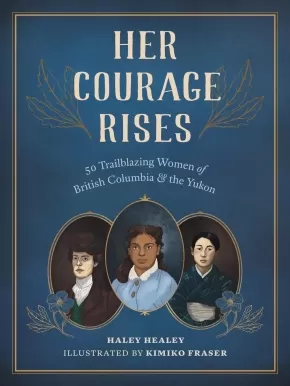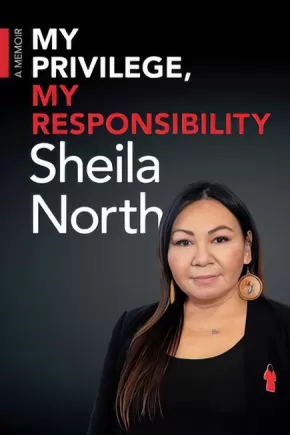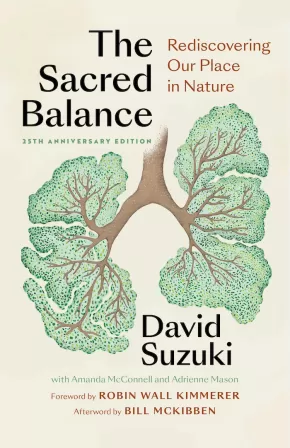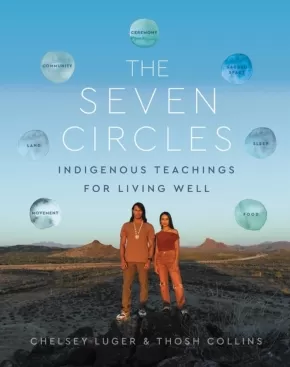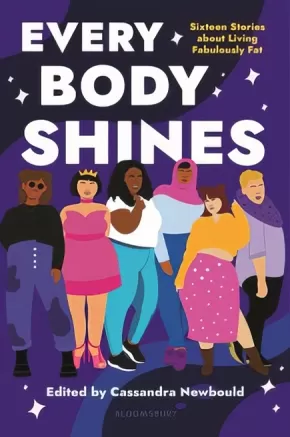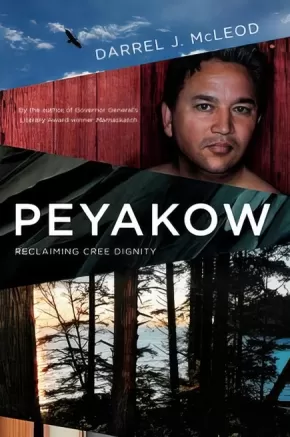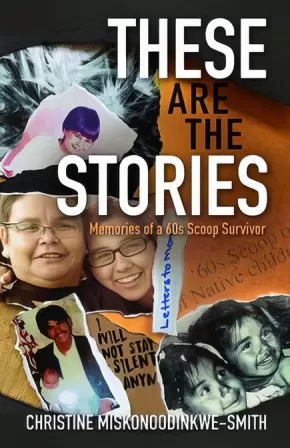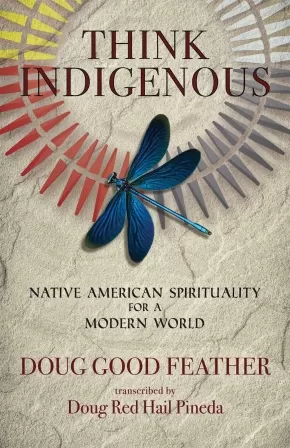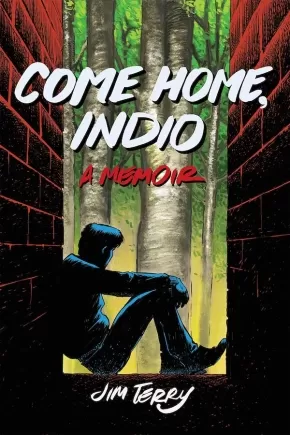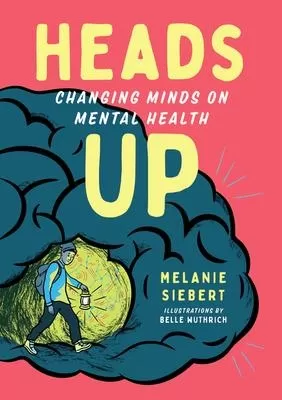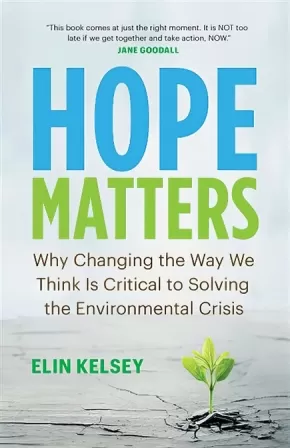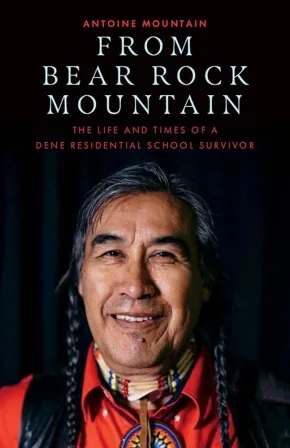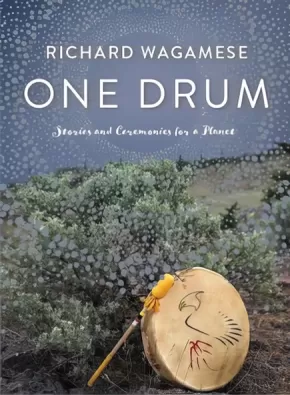
Stories of Inspiration
16
-
30
of
50 Results;
Sort By
Go To
of 4
Her Courage Rises: 50 Trailblazing Women of British Columbia and the Yukon
$22.95
Artists:
Format: Hardcover
Text Content Territories:
Indigenous Canadian; First Nations; Anishinaabeg; Ojibway; Haida; Haudenosaunee (Iroquois); Kanyen'keha:ka (Mohawk); Kwakwaka'wakw (Kwakiutl); Da'naxda'xw Awaetlala; Nuu-chah-nulth (Nootka); Salish; Coast Salish; Cowichan; Tagish; Tlingit; Métis; Indigenous Hawaiian;
ISBN / Barcode: 9781772034257
Synopsis:
Synopsis:
A beautifully illustrated collection of inspiring life stories of fifty extraordinary historical women from BC and the Yukon.
This fascinating, informative, and charming book introduces young readers to a diverse group of women who changed the face of history in unexpected ways and defied the expectations and gender norms of their times. Through charming illustrations and concise biographies, Her Courage Rises features social activists and politicians, artists and writers, scientists and healers, pioneers and prospectors, athletes and entrepreneurs, teachers and cultural tradition keepers.
These women represented all ages, walks of life, and backgrounds. Some, like Cougar Annie and shipwreck heroine Minnie Paterson, became legendary in popular culture, long after their deaths. Others, like politician Rosemary Brown, artist Emily Carr, and Olympic sprinter Barbara Howard, achieved fame during their lives. Still others, including photographer and cultural teacher Elizabeth Quocksister, artist and cultural consultant Florence Edenshaw, land claims activist and translator Jane Constance Cook (Ga’axsta’las), and language champion Barbara Touchie, made great strides in preserving and promoting Indigenous rights and cultures. And many, like environmentalist Ruth Masters, water diviner Evelyn Penrose, and Doukhobor pioneer Anna Markova, are less well-known but still made important contributions to their communities and our wider collective history.
Her Courage Rises is full of inspirational female role models and insights into the trailblazing women who made history in BC and the Yukon.
Reviews
"[An] extra-textual approach blended with rigorous traditional research allowed Healey and Fraser to create a fresh and unique historical document – one that not only gives fascinating detail, but manages to capture an ineffable humanity and relatability in even the most exceptional people profiled."
Quill & Quire
“This easily approachable book is a celebration of the achievements of fifty women who had the determination and strength of character to fashion new directions, sometimes despite great odds. Their stories represent hope and courage and serve as a reminder that women have always played a defining role in shaping their societies.”—Cathy Converse, author of Following the Curve of Time and Against the Current: The Remarkable Life of Agnes Deans Cameron
"Haley Healey has written another very important book highlighting the achievements of many women in history. This short book, beautifully illustrated by Kimiko Fraser, will be one to treasure in your favourite historical non-fiction collection."—Valerie Green, historian and author of If More Walls Could Talk: Vancouver Island’s Houses from the Past
“An engaging book that encourages the interest of young readers by providing a factual way in to explore diverse lives. By reframing unorthodox lives and breaking down stereotypes, the author highlights the resilience and determination of her subjects, made more tangible through the illustrations.”—Linda J. Eversole, author of Victoria Unbuttoned: A Red-Light History of BC's Capital City and Stella: Unrepentant Madam
Educator Information
Recommended for ages 12+
Additional Information
128 pages | 7.00" x 9.00" | Hardcover
My Privilege, My Responsibility: A Memoir
$24.95
Format: Paperback
Text Content Territories:
Indigenous Canadian; First Nations; Cree (Nehiyawak); Woodland Cree; Rocky Cree; Bunibonibee Cree Nation ;
Reading Level: N/A
ISBN / Barcode: 9781773370668
Synopsis:
Synopsis:
In September 2015, Sheila North was declared the Grand Chief of Manitoba Keewatinowi Okimakanak (MKO), the first woman elected to the position. Known as a “bridge builder”, North is a member of Bunibonibee Cree Nation. North’s work in advocacy journalism, communications, and economic development harnessed her passion for drawing focus to systemic racism faced by Indigenous women and girls. She is the creator of the widely used hashtag #MMIW. In her memoir, Sheila North shares the stories of the events that shaped her, and the violence that nearly stood in the way of her achieving her dreams. Through perseverance and resilience, she not only survived, she flourished.
Additional Information
232 pages | 6.00" x 9.00" | Paperback
Namwayut - We Are All One: A Pathway to Reconciliation
$29.95
Format: Hardcover
ISBN / Barcode: 9781774580059
Synopsis:
Synopsis:
We all share a common humanity. No matter how long or difficult the path ahead, we are all one.
Reconciliation belongs to everyone. In this profound book, Chief Robert Joseph, globally recognized peacebuilder and Hereditary Chief of the Gwawaenuk People, traces his journey from his childhood surviving residential school to his present-day role as a leader who inspires individual hope, collective change, and global transformation.
Before we get to know where we are going, we need to know where we came from. Reconciliation represents a long way forward, but it is a pathway toward our higher humanity, our highest selves, and an understanding that everybody matters. In Namwayut, Chief Joseph teaches us to transform our relationships with ourselves and each other. As we learn about, honour, and respect the truth of the stories we tell, we can also discover how to dismantle the walls of discrimination, hatred, and racism in our society.
Chief Joseph is known as one of the leading voices on peacebuilding in our time, and his dedication to reconciliation has been recognized with multiple honorary degrees and awards. As one of the remaining first-language speakers of Kwak'wala, his wisdom is grounded in Indigenous ways of knowing while making space for something bigger and better for all of us.
Additional Information
200 pages | 5.25" x 8.00" | Hardcover
The Sacred Balance: Rediscovering Our Place in Nature - 25th Anniversary Edition
$26.95
Format: Paperback
Text Content Territories:
Indigenous;
Reading Level: N/A
ISBN / Barcode: 9781771649865
Synopsis:
Synopsis:
“The Sacred Balance has a beautiful spirit.”—E.O. Wilson
With a new foreword from Robin Wall Kimmerer, New York Times-bestselling author of Braiding Sweetgrass—and an afterword from Bill McKibben—this special 25thanniversary edition of a beloved bestseller invites readers to see ourselves as part of nature, not separate.
The world is changing at a relentless pace. How can we slow down and act from a place of respect for all living things? The Sacred Balance shows us how.
In this extensively updated new edition, David Suzuki reflects on the increasingly radical changes in science and nature—from the climate crisis to peak oil and the rise in clean energy—and examines what they mean for humankind. He also reflects on what we have learned by listening to Indigenous leaders, whose knowledge of the natural world is profound, and whose peoples are on the frontlines of protecting land and water around the world.
Drawing on his own experiences and those of others who have put their beliefs into action, The Sacred Balance combines science, philosophy, spirituality, and Indigenous knowledge to offer concrete suggestions for creating an ecologically sustainable future by rediscovering and addressing humanity’s basic needs.
Additional Information
336 pages | 8.50" x 5.50" | Paperback
The Seven Circles: Indigenous Teachings for Living Well
$36.99
Format: Hardcover
Text Content Territories:
Indigenous American; Native American; Sioux; Pima (Akimel O'odham); Osage; Haudenosaunee (Iroquois); Seneca; Cayuga; Anishinaabeg; Ojibwe (Chippewa); Turtle Mountain Anishinaabe;
Grade Levels: 12; University/College;
ISBN / Barcode: 9780063119208
Synopsis:
Synopsis:
In this revolutionary self-help guide, two beloved Native American wellness activists offer wisdom for achieving spiritual, physical, and emotional wellbeing rooted in Indigenous ancestral knowledge.
When wellness teachers and husband-wife duo Chelsey Luger and Thosh Collins founded their Indigenous wellness initiative, Well for Culture, they extended an invitation to all to honor their whole self through Native wellness philosophies and practices. In reclaiming this ancient wisdom for health and wellbeing—drawing from traditions spanning multiple tribes—they developed the Seven Circles, a holistic model for modern living rooted in timeless teachings from their ancestors. Luger and Collins have introduced this universally adaptable template for living well to Ivy league universities and corporations like Nike, Adidas, and Google, and now make it available to everyone in this wise guide.
The Seven Circles model comprises interconnected circles that keep all aspects of our lives in balance, functioning in harmony with one another. They are:
- Food
- Movement
- Sleep
- Ceremony
- Sacred Space
- Land
- Community
In The Seven Circles, Luger and Collins share intimate stories from their life journeys growing up in tribal communities, from the Indigenous tradition of staying active and spiritually centered through running and dance, to the universal Indigenous emphasis on a light-filled, minimalist home to create sacred space. Along the way, Luger and Collins invite readers to both adapt these teachings to their lives as well as do so without appropriating and erasing the original context, representing a critical new ethos for the wellness space. Each chapter closes with practical advice on how to engage with the teachings, as well as wisdom for keeping that particular circle in harmony with the others.
With warmth and generosity—and 75 atmospheric photographs by Collins throughout—The Seven Circles teaches us how to connect with nature, with our community, and with ourselves, and to integrate ancient Indigenous philosophies of health and wellbeing into our own lives to find healing and balance.
Reviews
“A life-changing holistic guide to wellness rooted in empowerment, resiliency, and ‘good medicine.’ This book is for any human being searching for wellness solutions in a chaotic world, a true antidote to colonization.” — Vina Brown, Indigenous Scholar, Entrepreneur, Artist, and Professor of Indigenous Studies at Northwest Indian College
“The Seven Circles is a true innovation in Indigenous thought; it brings our shared heritage and traditional teachings to life. Truly inspiring. Readers will find their journey to be a motivating guide for self-transformation.” — Taiaiake Alfred, Mohawk Philosopher
“While the term ‘wellness’ has been co-opted and diluted by (primarily white) social media influencers in recent years, Luger and Collins are recentering the conversation around how to use Indigenous cultural values, foods, and modalities of movement as tools for spiritual, mental, physical, and emotional healing.” — Vanity Fair
“[Two of the] faces in the health and wellness scene that are pushing for inclusivity, justice, and kindness, toppling old conventions to make their own…Luger and Collins rewrite modern narratives regarding Native health while addressing complex histories and ongoing disparities.” — Outside magazine
“Spellbinding. This may be the first book I’ve ever read that made me stop and decide, “I’m making this change now!” Seven Circles opened my eyes to a way of life that is tested by time, guided by nature, and urgently needed today." — Christopher McDougall, author of Born to Run, Natural Born Heroes, and Running with Sherman
“Wisdom abounds in this stimulating offering.” — Publishers Weekly
“Luger and Collins provide a range of sensible, informed, accessible guidance for both small- and large-scale lifestyle changes. An appealing manual for healing the self through Indigenous traditions.” — Kirkus Reviews
Additional Information
256 pages | 7.00" x 9.00" | 75 Colour Photos | Hardcover
Every Body Shines: Sixteen Stories About Living Fabulously Fat
$25.99
Editors:
Format: Hardcover
ISBN / Barcode: 9781547606078
Synopsis:
Synopsis:
An intersectional, feminist YA anthology from some of today's most exciting voices across a span of genres, all celebrating body diversity and fat acceptance through short stories.
Fat girls and boys and nonbinary teens are: friends who lift each other up, heroes who rescue themselves, big bodies in space, intellects taking up space, and bodies looking and feeling beautiful. They express themselves through fashion, sports and other physical pursuits, through food, and music, and art. They are flirting and falling in love. They are loving to themselves and one another. With stories that feature fat main characters starring in a multitude of settings, and written by authors who live these lives too, this is truly a unique collection that shows fat young people the representation they deserve.
With a foreword by Aubrey Gordon, creator of Your Fat Friend, and with stories by:
Nafiza Azad, Chris Baron, Sheena Boekweg, Linda Camacho, Kelly deVos, Alex Gino, Claire Kann, amanda lovelace, Hillary Monahan, Cassandra Newbould, Francina Simone, Rebecca Sky, Monique Gray Smith, Renée Watson, Catherine Adel West, Jennifer Yen
Reviews
““A deeply validating and joyful collection! Every Body Shines is the kind of book I've been waiting to see on shelves my whole life.”” —Julie Murphy, New York Times bestselling author of Dumplin'
“Presenting both joys and frustrations, this unapologetically honest collection features characters finding their voices alongside characters who fully embrace their bodies, challenge stereotypes, and refuse to let anything hold them back, effectively dispelling any notion of fatness as a singular perspective.” —Publishers Weekly
“Readers can expect diverse takes on the experience of living as a fat person in modern times [ . . . ], to find characters of different gender identities, sexual orientations, cultural heritages, and race. No longer relegated to comedic relief or token sidekick, these fat teens, who are given multidimensional personalities, face troubles beyond others' views of their size and are given room to cultivate their own identities. A broad selection of genres makes this appealing to an expansive swath of socially conscious readers.” —Booklist, starred review
“Authors unite around body-celebrating fiction. Aubrey Gordon writes movingly about fat friendships and community in the introduction to this 16-story anthology, and readers might describe its stories as an assortment of fat friends holding out hands of welcome. Undeniably earnest and filling an important niche.” —Kirkus Reviews
Educator Information
Recommended for ages 14+
This work includes a contribution from Monique Gray Smith, who is of Cree, Lakota and Scottish ancestry, but the overall work is not Indigenous.
Additional Information
416 pages | 5.51" x 8.25" | Hardcover
Peyakow: Reclaiming Cree Dignity, A Memoir
$29.95
Format: Hardcover
Text Content Territories:
Indigenous Canadian; First Nations; Cree (Nehiyawak);
Grade Levels: 12; University/College;
ISBN / Barcode: 9781771622318
Synopsis:
Synopsis:
Mamaskatch, Darrel J. McLeod’s 2018 memoir of growing up Cree in Northern Alberta, was a publishing sensation—winning the Governor General's Literary Award for Non-Fiction, shortlisted for many other major prizes and translated into French and German editions. In Peyakow, McLeod continues the poignant story of his impoverished youth, beset by constant fears of being dragged down by the self-destruction and deaths of those closest to him as he battles the bullying of white classmates, copes with the trauma of physical and sexual abuse, and endures painful separation from his family and culture. With steely determination, he triumphs: now elementary teacher; now school principal; now head of an Indigenous delegation to the UN in Geneva; now executive in the Government of Canada—and now a celebrated author.
Brutally frank but buoyed throughout by McLeod’s unquenchable spirit, Peyakow—a title borrowed from the Cree word for “one who walks alone”—is an inspiring account of triumph against unimaginable odds. McLeod’s perspective as someone whose career path has crossed both sides of the Indigenous/white chasm resonates with particular force in today’s Canada.
Reviews
"Bravo! A job well done. You, my friend, are a very good writer." — Tomson Highway, February 2021
"This is the story of the remarkable professional life of a remarkable man. Whatever he worked on, including such important government files as the Nisga’a and Dene land settlements, he started out and remained a fierce champion of Indigenous rights. Wherever he travelled, he carried with him his past, the joys and tragedies of his own family, and the dignity and courage of his Cree ancestors. The book is a story of triumph, made particularly moving because McLeod doesn’t hide the demons he wrestles with as a two-spirited and Indigenous man." — Lorna Crozier, author of Through the Garden, February 2021
"McLeod boldly reconnects and reflects upon decades of lived experiences from familial, Cree traditional life of living off the land, to a professional (ultimately international) life dedicated to Indigenous rights and wellbeing. By reconnecting stories torn apart by poverty, tragic deaths, racism, homophobia and bureaucratic white privilege, McLeod performs a sacred act." — Betsy Warland, author of Oscar of Between, February 2021
Additional Information
240 pages | 6.00" x 9.00" | 8-page photo insert
These Are the Stories: Memories of a 60s Scoop Survivor
$22.00
Format: Paperback
Text Content Territories:
Indigenous Canadian; First Nations; Anishinaabeg; Ojibway; Saulteaux;
Reading Level: N/A
ISBN / Barcode: 9781928120278
Synopsis:
Synopsis:
These are the Stories is a memoir presented in short chapters, comprising the life of a survivor of the Sixties Scoop. Christine Miskonoodinkwe Smith reveals her experiences in the child welfare system and her journey towards healing in various stages of her life. As an adult, she was able to reconnect with her birth mother. Though her mother passed shortly afterward, that reconnection allowed the author to finally feel "complete, whole, and home." The memoir details some of the author's travels across Canada as she eventually made a connection with the Peguis First Nation in Manitoba.
A memoir in the vein of Colleen Hele Cardinal's Raised Somewhere Else and Alicia Elliot's A Mind Spread Out On the Ground, These are the Stories is an inspirational and courageous telling of a life story.
Additional Information
170 pages | 5.50" x 8.50" | Paperback
Think Indigenous: Native American Spirituality for a Modern World
$22.99
Format: Paperback
Text Content Territories:
Indigenous American; Native American; Sioux; Lakota;
Grade Levels: 12; University/College;
ISBN / Barcode: 9781401956165
Synopsis:
Synopsis:
A guide to integrating indigenous thinking into modern life for a more interconnected and spiritual relationship with our fellow beings, Mother Earth, and the natural ways of the universe.
With each generation, we have drifted further and further away from our ability to recognize and connect with the source of our original design. In this modern world, we spend our attention in ways that benefit the powers that be, and not ourselves or the earth.
This book's intention is not to teach you to "be Native American," but instead to use the indigenous culture of the Lakota to help you connect with your own indigenous roots and help you remember your ancestral knowing that all beings are divinely connected.
Thinking indigenously centers around three concepts:
1) The way of the seven generations--conscious living
2) The way of the buffalo--mindful consumption
3) The way of the village--collective impact
Author Doug Good Feather, with Doug Pineda, shares the knowledge that has been handed down through his Lakota elders to help you connect with your purpose in life, personal power, and place in this interconnected web with Spirit, Mother Earth, and humanity as a whole.
Additional Information
176 pages | 5.50" x 8.50"
Come Home, Indio: A Memoir
$30.95
Format: Paperback
Text Content Territories:
Indigenous American; Native American; Ho-Chunk (Winnebago);
ISBN / Barcode: 9781951491048
Synopsis:
Synopsis:
A brutally honest but charming look at the pain of childhood and the alienation and anxiety of early adulthood.
In his memoir, we are invited to walk through the life of the author, Jim Terry, as he struggles to find security and comfort in an often hostile environment. Between the Ho-Chunk community of his Native American family in Wisconsin and his schoolmates in the Chicago suburbs, he tries in vain to fit in and eventually turns to alcohol to provide an escape from increasing loneliness and alienation. Terry also shares with the reader in exquisite detail the process by which he finds hope and gets sober, as well as the powerful experience of finding something to believe in and to belong to at the Dakota Access Pipeline resistance at Standing Rock.
Reviews
"fortunately for readers of this raw and intimate graphic memoir, Terry never fully lets go of his youthful vulnerability. . . . Reckoning with sobriety requires connection and humility, as Terry makes the case for with sincerity and beauty, as he ties his recovery to his spiritual homecoming.” —Starred Review, Publishers Weekly.
“Terry, known for his outstanding superhero illustrations, turns the lens inward in this brutally honest memoir. . . . An exceptionally well-told story with no easy answers but an ending that will inspire.” —Starred Review, Booklist.
“Illuminated by bursts of both joy and sorrow. With humbling sensitivity and candor, Jim shares with us his personal journey down emotionally complex paths towards home.” —TIMOTHY TRUMAN, author of Marvel Comics’ Conan series.
“An epic memoir. Terry has a way with words — his pithy writing skillfully mixes nostalgia and melancholy. But it his gorgeous, inventive, black-and-white artwork that makes this book so memorable.”— JOSH NEUFELD, author of A.D.: New Orleans After the Deluge
Educator Information
Recommended for ages 16+
Additional Information
240 pages | 6.00" x 9.00"
Fatty Legs: A True Story (10th Anniversary Edition) (PB)
$15.95
Artists:
Format: Paperback
Text Content Territories:
Indigenous Canadian; Inuit; Inuvialuit (Mackenzie Inuit);
ISBN / Barcode: 9781773213507
Synopsis:
Synopsis:
The beloved story of an Inuvialuit girl standing up to the bullies of residential school, updated for a new generation of readers.
Margaret Olemaun Pokiak-Fenton’s powerful story of residential school in the far North has been reissued to commemorate the memoir’s 10th anniversary with updates to the text, reflections on the book’s impact, and a bonus chapter from the acclaimed follow-up, A Stranger at Home. New content includes a foreword from Dr. Debbie Reese, noted Indigenous scholar and founder of American Indians in Children’s Literature, while Christy Jordan-Fenton, mother of Margaret’s grandchildren and a key player in helping Margaret share her stories, discusses the impact of the book in a new preface.
With important updates since it first hit the shelves a decade ago, this new edition of Fatty Legs will continue to resonate with readers young and old.
Reviews
"I highly recommend this book for the discussion it would stir with students...Makes the harrowing residential school stories accessible to youth." — Resource Links
"Presents a unique and enlightening glimpse into the residential school experience and, most importantly, one little girl's triumph over her oppressors." — Quill & Quire
"Fatty Legs is a memoir written to introduce children to the reality of the residential school system and the focus on assimilating Indigenous peoples. The story documents the journey of a young girl who wanted to go to school to learn to read and her realization that school wasn’t what she imagined it to be." — The Dalai Lama Center
Educator Information
Themes: biography; Inuit; Indigenous peoples; Indigenous; arctic; school; self-esteem; abuse; community; prejudice; Canadian content; courage/bravery; right vs. wrong; role reversal; secrets; society; history; bullying; memoir; character education.
This resource is also available in French: Les bas du pensionnat
This resource is also available in its original format: Fatty Legs: A True Story
Additional Information
| 156 pages | 6.50" x 9.00" |
Authenticity Note
This illustrator of this book is not Indigenous; therefore, her artwork is not considered to be Authentic Indigenous Artwork according to Strong Nations Authenticity Guidelines. The archival photos from Margaret Pokiak-Fenton's personal collection, however, are considered to be authentic, which is why the book is labelled as containing Authentic Indigenous Artwork. It is up to readers to determine whether or not the images in this work are authentic for their purposes.
Heads Up: Changing Minds on Mental Health
$24.95
Artists:
Format: Paperback
Text Content Territories:
Indigenous;
ISBN / Barcode: 9781459819115
Synopsis:
Synopsis:
Featuring real-life stories of people who have found hope and meaning in the midst of life’s struggles, Heads Up: Changing Minds on Mental Health is the go-to guide for teenagers who want to know about mental health, mental illness, trauma and recovery. For too long, mental health problems have been kept in the shadows, leaving people to suffer in silence, or worse, to be feared, bullied or pushed to the margins of society where survival is difficult.
This book shines a light on the troubled history of thinking about and treating mental illness and tells the stories of courageous pioneers in the field of psychiatry who fought for more compassionate, respectful and effective treatments. It provides a helpful guide to the major mental health diagnoses along with ideas and resources to support those who are suffering. But it also moves beyond a biomedical focus and considers the latest science that shows how trauma and social inequality impact mental health. The book explores how mental health is more than just “in our heads” and includes the voices of Indigenous people who share a more holistic way of thinking about wellness, balancing mind, body, heart and spirit. Highlighting innovative approaches such as trauma-informed activities like yoga and hip-hop, police mental health teams, and peer support for youth, Heads Up shares the stories of people who are sparking change.
Educator Information
Recommended for ages 12+.
Keywords / Subjects / Themes: youth mental health, mental health, anxiety, recovery, ending stigma, Indigenous youth.
Additional Information
192 pages | 6.00" x 8.50"
Hope Matters: Why Changing the Way We Think Is Critical to Solving the Environmental Crisis
$22.95
Format: Paperback
ISBN / Barcode: 9781771647779
Synopsis:
Synopsis:
Fears about climate change are fueling an epidemic of despair across the world: adults worry about their children’s future; thirty-somethings question whether they should have kids or not; and many young people honestly believe they have no future at all.
In the face of extreme eco-anxiety, scholar and award-winning author Elin Kelsey argues that our hopelessness—while an understandable reaction—is hampering our ability to address the very real problems we face. Kelsey offers a powerful solution: hope itself.
Hope Matters boldly breaks through the narrative of doom and gloom to show why evidence-based hope, not fear, is our most powerful tool for change. Kelsey shares real-life examples of positive climate news that reveal the power of our mindsets to shape reality, the resilience of nature, and the transformative possibilities of individual and collective action. And she demonstrates how we can build on positive trends to work toward a sustainable and just future, before it’s too late.
Reviews
“Like Elin, I have met countless people who have lost hope in many countries. Most were apathetic. Some were angry. Others depressed. Because, they told me, their future has been compromised and there was nothing they could do about it. But there is something they can do. This book comes at just the right moment. It brings a message of hope to help curb the negativity, the gloom and doom we are confronted with each day. It is NOT too late if we get together and take action, NOW.” —Jane Goodall, PhD, DBE, founder of the Jane Goodall Institute and UN Messenger of Peace
“Elin Kelsey is that rare creature—perhaps unique?—who writes with the acuity of a scientist, the grace of a poet, and the heart of a mother. After decades of fighting the good fight on behalf of her beloved oceans and their wildlife, she realizes that our conversations about environmentalism are often thwarted by overwhelming doubt and despair. Hope Matters is a clarion call to reawaken our spirits and renew our efforts, filled with engaging success stories, lyrical nature writing, and actionable ideas. 'We can recognize the urgency of the problem and be inspired by the resilience of other species,' Kelsey writes. This is a book to inspire resilience: for our children, for our leaders, for ourselves.”— Anne Nelson, Fellow, Arnold A. Saltzman Institute, Columbia University School for International and Public Affairs, and author of Suzanne’s Children: A Daring Rescue in Nazi Paris
“In a time when so much of the news on biodiversity is depressing, Dr. Elin Kelsey reminds us that there are good reasons to be hopeful. This book is a tonic in hard times.”—Claudia Dreifus, instructor in Columbia University’s Masters in Sustainability Management program and author of Scientific Conversations: Interviews on Science from the New York Times
Additional Information
240 pages | 5.50" x 8.50"
From Bear Rock Mountain: The Life and Times of a Dene Residential School Survivor
$30.00
Format: Hardcover
Text Content Territories:
Indigenous Canadian; First Nations; Dene;
ISBN / Barcode: 9781927366806
Synopsis:
Synopsis:
In this poetic, poignant memoir, Dene artist and social activist Antoine Mountain paints an unforgettable picture of his journey from residential school to art school—and his path to healing.
In 1949, Antoine Mountain was born on the land near Radelie Koe, Fort Good Hope, Northwest Territories. At the tender age of seven, he was stolen away from his home and sent to a residential school—run by the Roman Catholic Church in collusion with the Government of Canada—three hundred kilometres away. Over the next twelve years, the three residential schools Mountain was forced to attend systematically worked to erase his language and culture, the very roots of his identity.
While reconnecting to that which had been taken from him, he had a disturbing and painful revelation of the bitter depths of colonialism and its legacy of cultural genocide. Canada has its own holocaust, Mountain argues.
As a celebrated artist and social activist today, Mountain shares this moving, personal story of healing and the reclamation of his Dene identity.
Educator Information
Recommended in the Canadian Indigenous Books for Schools 2019-2020 resource list as being useful for grades 9 to 12 in the following subject areas: English Language Arts, Social Studies.
Included in this story are personal stories of residential school and addiction.
Additional Information
272 pages | 5.50" x 8.50"
One Drum: Stories and Ceremonies for a Planet
$21.95
Format: Paperback
Text Content Territories:
Indigenous Canadian; First Nations; Anishinaabeg; Ojibway; Wabaseemoong First Nation;
Grade Levels: 12; University/College;
ISBN / Barcode: 9781771622295
Synopsis:
Synopsis:
“The most profound truth in the universe is this: that we are all one drum and we need each other.” —Richard Wagamese, One Drum
A posthumous volume of stories and ceremonies -- and a fitting tribute to Richard Wagamese's spiritual and literacy legacy.
Fans of Richard Wagamese’s writing will be heartened by the news that the bestselling author left behind a manuscript he’d been working on until shortly before his death in 2017. One Drum welcomes readers to unite in ceremony to heal themselves and bring harmony to their lives and communities.
In One Drum, Wagamese wrote, “I am not a shaman. Nor am I an elder, a pipe carrier, or a celebrated traditionalist. I am merely one who has trudged the same path many of this human family has—the path of the seeker, called forward by a yearning I have not always understood.”
One Drum draws from the foundational teachings of Ojibway tradition, the Grandfather Teachings. Focusing specifically on the lessons of humility, respect and courage, the volume contains simple ceremonies that anyone anywhere can do, alone or in a group, to foster harmony and connection. Wagamese believed that there is a shaman in each of us, and we are all teachers and in the world of the spirit there is no right way or wrong way.
Writing of neglect, abuse and loss of identity, Wagamese recalled living on the street, going to jail, drinking too much, feeling rootless and afraid, and then the feeling of hope he gained from connecting with the spiritual ways of his people. He expressed the belief that ceremony has the power to unify and to heal for people of all backgrounds. “When that happens,” he wrote, “we truly become one song and one drum beating together in a common purpose—and we are on the path to being healed.”
Additional Information
160 pages | 5.50" x 8.00"
Sort By
Go To
of 4

